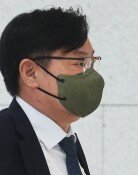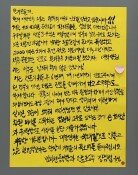[Editorial] Differentiating Between Good and Bad Banks
[Editorial] Differentiating Between Good and Bad Banks
Posted December. 22, 2008 05:52,
Massive funds released by the Bank of Korea are hanging around the financial market rather than making their way to companies. This is because banks are running funds on a short-term basis ahead of the year-end settlement of their books. The funds for which banks submitted bids to park at the central bank reached a whopping 41 trillion won (31.7 billion U.S. dollars) Thursday, but the central bank only absorbed 13 trillion won of the total (10 billion dollars), and resent the remainder to the market.
The credit crunch lingers in the corporate sector despite a flood of funds in the banking sector, because banks are reluctant to make corporate loans. The Financial Services Commission decided to launch a fund worth 20 trillion won (15.48 billion dollars) next month to secure funds to support banks. Banks can no longer afford to shun lending at the pretext of the Bank for International Settlements capital adequacy ratio. The Korea Housing Finance Corp. and the Korea Asset Management Corp. also agreed to preemptively purchase bad assets from banks, which has significantly eased worry over potential non-performing assets. In addition, nearly a month has passed since the Financial Supervisory Service pledged that it will not hold bank staff responsible for loans made in accordance with the fast track lending plan for small and medium-size enterprises, unless problems stem from bad intentions or significant mistakes.
If banks still seek to blindly protect their own interests by holding onto funds in their possession, they will be held accountable for aggravating the crisis in the real economy. Financial Supervisory Service Chairman Kim Jong-chang will again urge commercial bank chiefs to extend support to small business. Bank chiefs will then have to duly promise that banks will play their roles in bridging funds to curb the simultaneous collapse of the financial market and the real economy. Banks should do their best to carry out their obligations to prevent forcing the Bank of Korea to buy commercial papers, as in the case for the United States and Japan. The financial watchdog should discriminately support and regulate the banking sector according to corporate lending records to prompt banks, which are well versed in the situations of individual companies, to implement microeconomic lending policies accordingly.
The Financial Supervisory Commission said the government will not excessively intervene in management of banks receiving state support. Nevertheless, the government must hold responsible banks that helped trigger managerial crises by drastically expanding risky loans to the real estate, leasing and construction sectors, which are highly susceptible to the economic cycle, over the past two years. If authorities seek to exempt banks from their managerial responsibilities by interpreting the fund for expanding bank capital as quasi-public funds, improving managerial soundness will not be possible. Washington will extend 17.4 billion dollars in emergency funds to the auto industry under the condition that the funds be redeemed if the sectors restructuring efforts are lacking.
Headline News
- Med professors announce intention to leave hospitals starting Thursday
- Bridge honoring Sgt. Moon Jae-sik unveiled in Pennsylvania
- Chief of Staff Chung tells presidential secretaries to stay away from politics
- US FTC bans noncompete agreements
- N. Korea launches cyberattacks on S. Korea's defense companies







